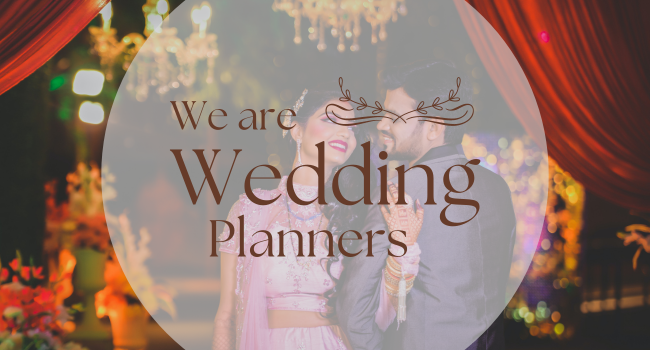
Weddings in India are renowned for their grandeur, cultural diversity, and vibrant celebrations. Planning such a momentous event can be an exciting yet daunting task. With numerous traditions, customs, and logistical considerations, it’s crucial to have a well-defined roadmap for a smooth and successful wedding planning journey. In this comprehensive guide, we present the top 10 steps to start wedding planning in India, ensuring that every detail is meticulously taken care of. So, let’s dive right in and begin this exhilarating adventure!
Setting a budget is the foundation of your wedding planning process. Assess your financial resources and allocate funds to different aspects, such as venue, catering, decor, attire, and entertainment. Prioritize your expenses and be mindful of any additional costs that may arise.
Compile a guest list with your partner, considering both immediate family members and friends. Determine the number of guests you wish to invite, keeping in mind the size of your chosen venue and your budget. This will help you estimate costs and make arrangements accordingly.
Choosing the right wedding date is essential, taking into account auspicious days, seasonal weather conditions, and the availability of key venues and vendors. Consult with your families and consider any cultural or religious considerations that may impact the choice of date.
Indian weddings encompass a rich tapestry of traditions and regional customs. Determine the style and theme you desire, whether it’s a traditional affair, a fusion of cultures, or a modern celebration. This decision will guide your choices for decorations, attire, and overall ambiance.
Selecting a suitable venue is crucial to setting the stage for your dream wedding. Consider factors such as capacity, location, amenities, and ambiance. Explore options ranging from opulent banquet halls and luxurious hotels to picturesque outdoor settings and heritage properties.
Engaging the services of a professional wedding planner can alleviate stress and ensure a seamless planning process. A skilled planner can help you with vendor selection, budget management, logistics, and coordination, allowing you to relax and enjoy the festivities.
Research and shortlist reputable vendors, including caterers, photographers, decorators, musicians, and makeup artists. Evaluate their portfolios, read reviews, and meet them in person to discuss your requirements. Make informed decisions to ensure top-notch services for your big day.
Immerse yourself in the creative aspect of wedding planning by conceptualizing the decorations. From floral arrangements and lighting to stage setup and thematic props, meticulously plan the decor elements that will transform your venue into a magical space.
Indian weddings are known for their dazzling attire and intricate designs. Choose your wedding attire, as well as outfits for your immediate family and close relatives. Allow sufficient time for fittings and alterations to ensure a perfect fit.
Craft a comprehensive timeline that outlines the sequence of events, ceremonies, and performances for your wedding. Coordinate with your vendors, families, and the wedding planner to ensure a smooth flow of activities throughout the day, leaving no room for confusion.
Q1: How far in advance should I start planning my Indian wedding?
It is recommended to start planning your Indian wedding at least 9 to 12 months in advance. This timeline allows ample time for securing the desired venue, booking vendors, and managing all the intricate details associated with Indian weddings.
Q2: How can I incorporate traditional customs into a modern wedding?
To blend traditional customs with a modern touch, you can include rituals like the Mehndi ceremony, Sangeet, and Baraat procession. Customize these events to reflect your unique style and preferences while honoring your cultural heritage.
Q3: What are some popular Indian wedding themes?
Popular Indian wedding themes include royal palaces, rustic charm, beach destination, Bollywood-inspired, and regal heritage. Choose a theme that resonates with your vision and adds an enchanting element to your celebrations.
Q4: How can I manage my wedding budget effectively?
To manage your wedding budget effectively, prioritize your expenses and allocate funds accordingly. Obtain multiple quotes from vendors, negotiate prices, and consider cost-saving alternatives without compromising on quality.
Q5: What are the essential documents required for an Indian wedding?
The essential documents required for an Indian wedding include proof of age, residence, and identity for both the bride and groom. Additionally, you may need to provide affidavits, photographs, and any specific documents mandated by your religion or region.
Q6: How can I ensure smooth wedding day coordination?
To ensure smooth wedding day coordination, appoint a trusted family member or friend to act as a point person for communication and coordination with vendors. Share the detailed wedding timeline with all involved parties, allowing everyone to stay on track.
Model shall, for sake of taxes, state fees, and regulations be considered an individual contractor or company, as the case may be, and will be responsible for all payments of such fees made due.